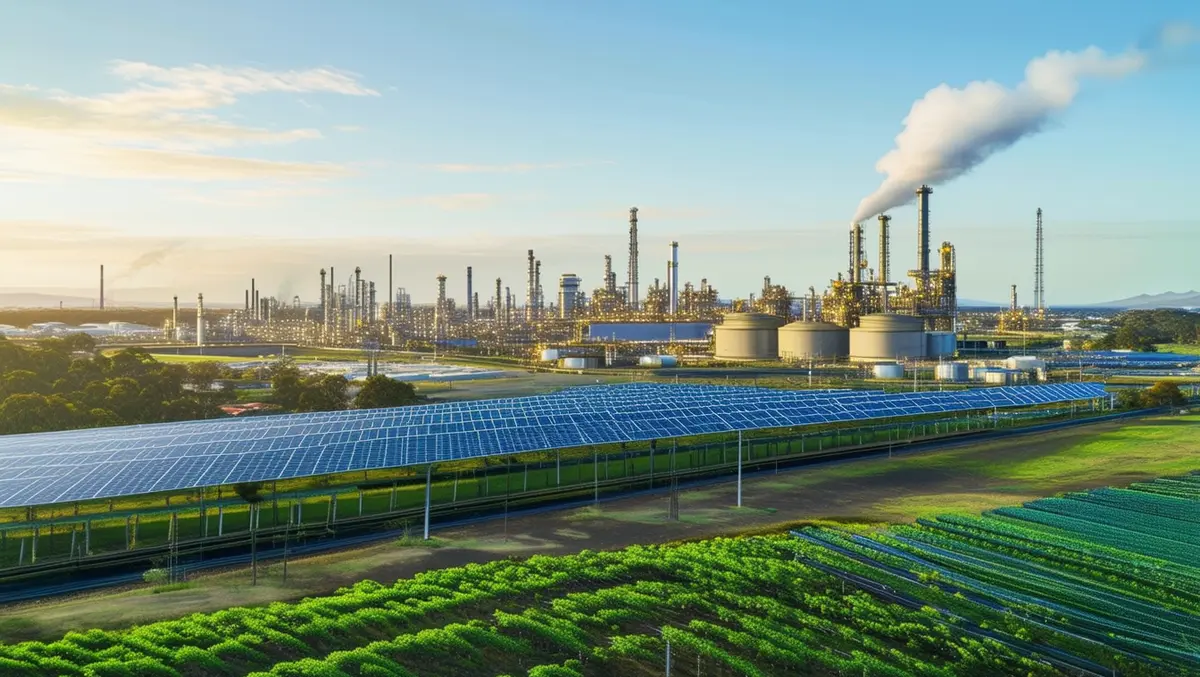
Australia's energy transition behind global pace, study says
New research has shown that leaders across various industries are urging the government to facilitate the energy transition, with many firms still encountering challenges in planning or acting to decarbonise their operations.
The 2024 Sustainability Index by Schneider Electric highlights that over half of Australia's corporate decision-makers feel that the country's energy transition lags behind the rest of the world. The survey reveals that while many businesses support the need for Australia to meet emissions targets, 40% of companies are not taking action to decarbonise, and one in four lack any intention of achieving net zero by 2050.
Less than 20% of companies have formulated an overarching decarbonisation roadmap or strategy. An overwhelming majority of corporate leaders (80%) believe the government should back the energy transition, with a third citing regulation as the primary driver of decarbonisation efforts. Additionally, 81% of respondents are advocating for financial incentives from the government to make sustainable transformation viable, an increase from 76% the previous year.
Lisa Zembrodt, Principal and Senior Director of the Sustainability Business for the Pacific Zone at Schneider Electric, emphasised that the survey results indicate businesses support the energy transition. However, she underscored the risks companies face if they fail to act, especially with impending regulations requiring detailed disclosure of decarbonisation strategies and targets.
"Most businesses recognise sustainability as a competitive advantage, but many do not understand the urgency of climate action," said Zembrodt. "With new climate-related financial disclosure regulations rolling out next year, having a roadmap to transition to a low-carbon economy will be critical. Companies should urgently develop and implement a net zero plan."
The upcoming disclosure rules, based on standards set by the International Sustainability Standards Board, will mandate companies to disclose extensive information on climate-related issues, including governance, strategies, risk management, and targets. These regulations will take effect for the largest companies in January 2025, with a gradual rollout for smaller organisations.
This year's survey results reveal that achieving net zero greenhouse gas emissions is still a distant goal for most Australian companies. While a limited number expect to reach this target by 2025 or 2030, 72% anticipate achieving net zero by 2050 based on current projections.
"This year's results highlight a persistent gap between the most progressive companies and those yet to take action," said Zembrodt. "We must bridge this gap by sharing knowledge and resources across industries, defining clear expectations, and seeking leadership and support from the government."
The survey indicates that some companies must balance the introduction of sustainability measures with profitability, owing to the higher cost of certain renewable energy options. However, 71% agree that the benefits of sustainable technologies outweigh the costs.
Among the top barriers to adopting sustainable solutions, 37% of respondents cited a lack of financial resources, 36% mentioned it was not seen as urgent by their business, and 33% pointed to a lack of government incentives. Furthermore, two-thirds of businesses reported that basic methods of collecting data, such as relying on bills and spreadsheets, hinder their ability to monitor and improve efficiency and sustainability.
Other findings from the report indicate that while 70% of respondents are discussing Scope 1, 2, and 3 emissions, only 10% have a strategy for managing Scope 3 emissions created along the value chain. Additionally, more than half have yet to assess climate risks and opportunities or develop a transition plan for their business. Only 44% of companies actively manage energy volatility, suggesting significant opportunities for energy management actions.
Following various Federal Government initiatives, including the establishment of a Net Zero Authority and the introduction of climate reporting rules, just 54% of respondents believe Australia is falling behind other countries on climate change action, compared to two-thirds in last year's Index. While 70% of Australian business leaders agree that sustainable transformation gives them a competitive edge, this figure is down from 76% last year, indicating a normalisation of progress on sustainability.


